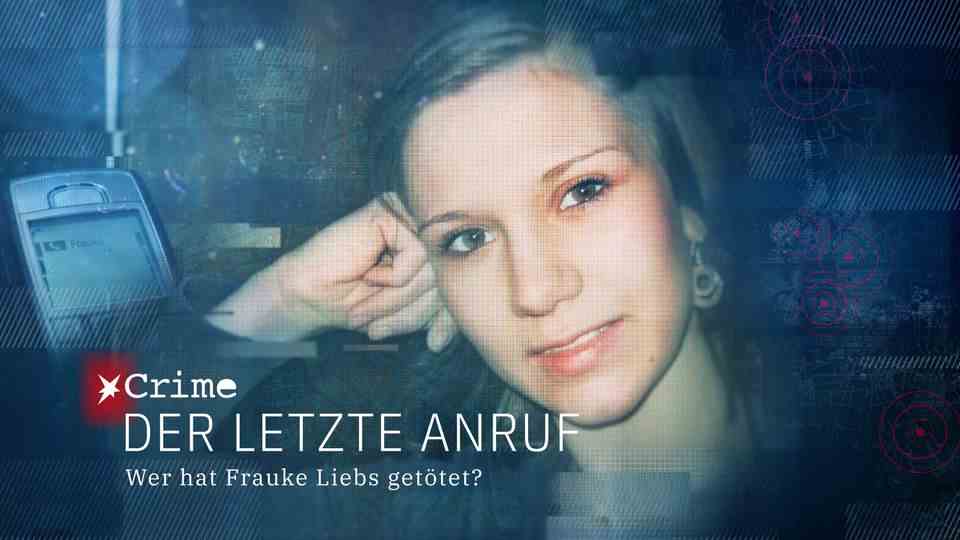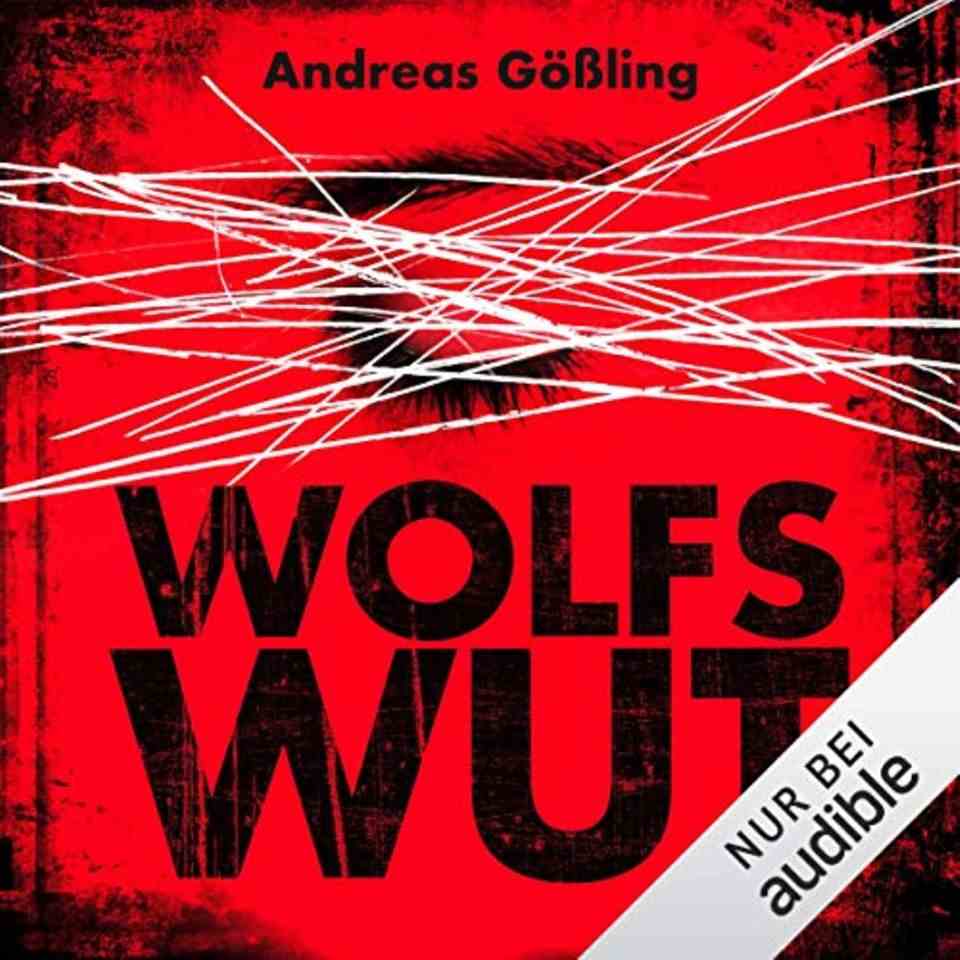The Weimar murders have burned themselves into the collective memory like no other criminal case. In a three-part true crime documentary, RTL+ traces the events surrounding the spectacular series of trials against Monika Weimar in the 80s and 90s – and in doing so brings new information to light.
There are only a few criminal cases in the history of the Federal Republic, a name alone is enough – and the memory is back. The murder of Rosemarie Nitribitt in the late 1950’s. The conviction of Ingrid van Bergen for the fatal shooting of her lover. Or the case of Monika Weimar, who was tried three times in the 1980s and 1990s for killing her two little daughters.
The crime alone was terrible enough, the murder of two innocent little children, Melanie and Karola, then seven and five years old. In addition, only two people appeared to be the perpetrators: the mother, Monika Weimar, née Böttcher. Or the father, Reinhard Weimar, who partly accused each other of the crime in their statements. And then there was the processing by the judiciary, which took place in an atmosphere somewhere between a stadium and a show trial. Life imprisonment – acquittal – again life imprisonment were the verdicts of three different courts before which Monika Böttcher, as she called herself again after her divorce in 1987, had to answer. Böttcher was in Preungesheim prison for a total of 15 years before she was released from prison in August 2006.
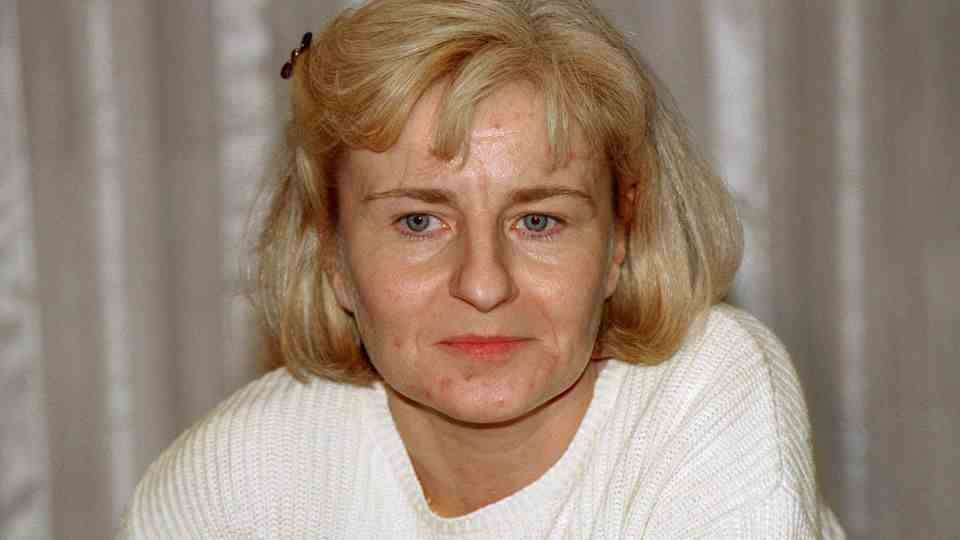
One of the last pictures of Monika Böttcher at a press conference in 2000. Shortly afterwards she had to return to the Preungesheim prison and serve another six years of her sentence
© Stephanie Pilick/ / Picture Alliance
The crime was almost 36 years ago. The mere fact that Böttcher stood trial three times and was convicted twice – the last time in December 1999 – makes the case historically exceptional. The emotions that accompanied the judicial drama were also exceptional, dividing the public and the media into two irreconcilable camps: you or he? Guilty or innocent – there seemed to be no in between.
In the three-part true-crime documentary “The Secret of the Weimar Murders” produced by “Spiegel TV”, RTL+ (available from Monday, March 7) traces the events of that time once again. Investigators, judges, lawyers and trial observers have their say. And even today, almost 36 years later, you can feel the uneasiness that grips those involved in the process when they remember it. Whether justice was actually done at the time, or whether Monika Böttcher was innocent behind bars after all. Whether the verdict may have taken away a large part of the years of her life.
Karola and Melanie Weimar were strangled and suffocated
Flashback: On August 4, 1986, the two children Karola (5) and Melanie (7) are reported missing. Three days later, the bodies of the two girls were found in different places near their parents’ house in Philippsthal, Hesse. The autopsy shows that both were strangled or suffocated by the morning of August 4 at the latest.
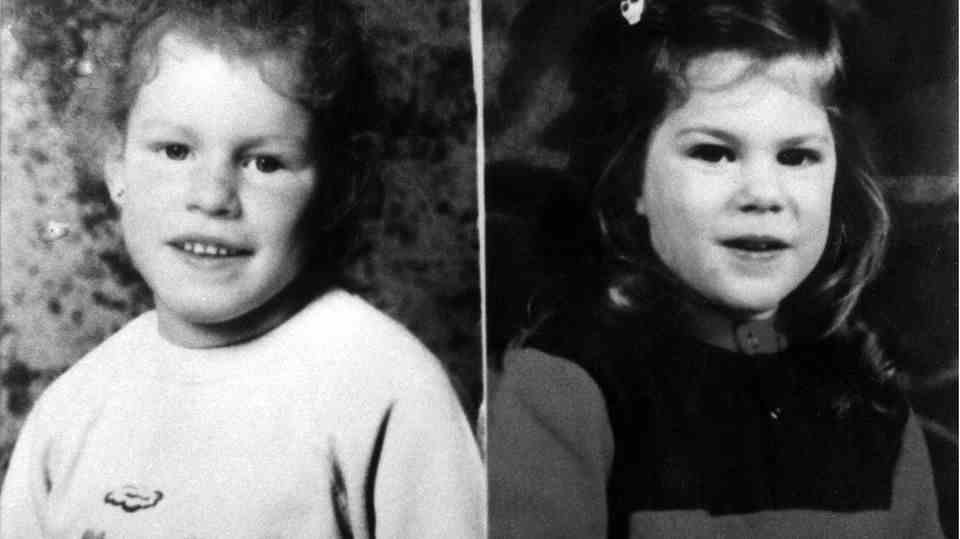
The two girls Melanie (left) and Karola Weimar were murdered on August 4, 1986, and their bodies were found three days later near their parents’ house
© Archive/ / Picture Alliance
The statements made by Monika Böttcher in particular are extremely contradictory. First, she claims to have made the children breakfast in the morning and then sent them to a playground near the house. She herself then left to run errands. Only after her return, when preparing for lunch, did she notice the children’s disappearance. This version entered the interrogation files as the “day version”.
Monika Weimar burdens her husband in the “night version”.
The investigations raise doubts about this account, so that Monika Böttcher is arrested on August 28th. In another interrogation, she then describes a completely different version of the events of January 4th and blames her husband Reinhard. She returned home at 3 a.m. on the night in question and found her husband by the dead children’s beds. The bodies were still warm. Her husband then disposed of the lifeless bodies and said to her when he returned: “Now nobody will have the children anymore.” Monika Weimar maintains this so-called “night version” in all three procedures.
The investigators quickly determine that only the mother or father could be the perpetrators. They exclude a third person. In October, after numerous volts during the investigation, an arrest warrant is finally issued against Monika Böttcher.
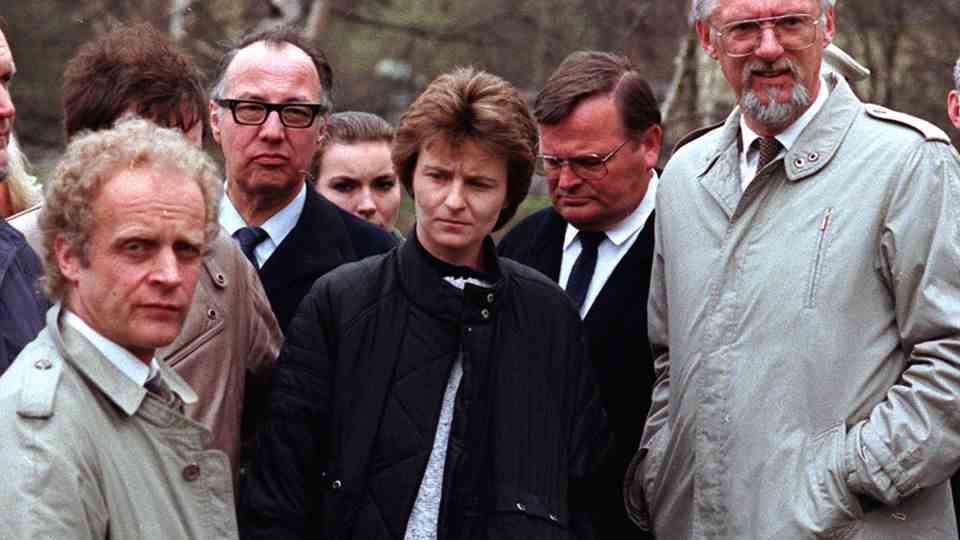
During an on-site visit, the court tries to reconstruct the events of the night of the murder. In the middle: Monika Böttcher
© Frank_Kleefeldt/ / Picture Alliance
In a first trial before the Fulda district court, she was found guilty on January 8, 1988 and sentenced to life imprisonment. The judges reasoned that children got in the way of her love affair with Kevin Pratt, a US soldier with whom Monika Böttcher dreamed of a life together in the USA. The verdict is based on statements by witnesses who claim to have seen the children alive on the morning of August 4th and on a fiber report. In addition, Monika Böttcher cannot explain conclusively why she initially misled the police with the “day version” and then ultimately accused her husband. The court was particularly irritated by her own behavior in the “night version” she put forward. Why she didn’t immediately call for help when she supposedly found the dead children, and why she even covered for her husband during her interrogations weeks after the crime, cannot be explained in the eyes of the judges with shock and feelings of guilt.
Böttcher’s new lawyer, Gerhard Strate from Hamburg, managed to have the proceedings resumed years later with a new fiber report. In April 1997, the Giessen Regional Court acquitted Monika Böttcher for lack of evidence.
The public prosecutor’s office and Reinhard Weimar filed an appeal, which was approved by the Federal Court of Justice. The evidence is “contradictory on central points”. In September 1999, the third trial took place before the Frankfurt district court. Böttcher maintains the “night version” and blames her ex-husband Reinhard. On December 22, 1999 the verdict was handed down. Böttcher is found guilty again, but the court does not recognize the particular severity of the guilt. A revision is discarded. Monika Böttcher is serving the remaining six years of her sentence before being released in 2006.
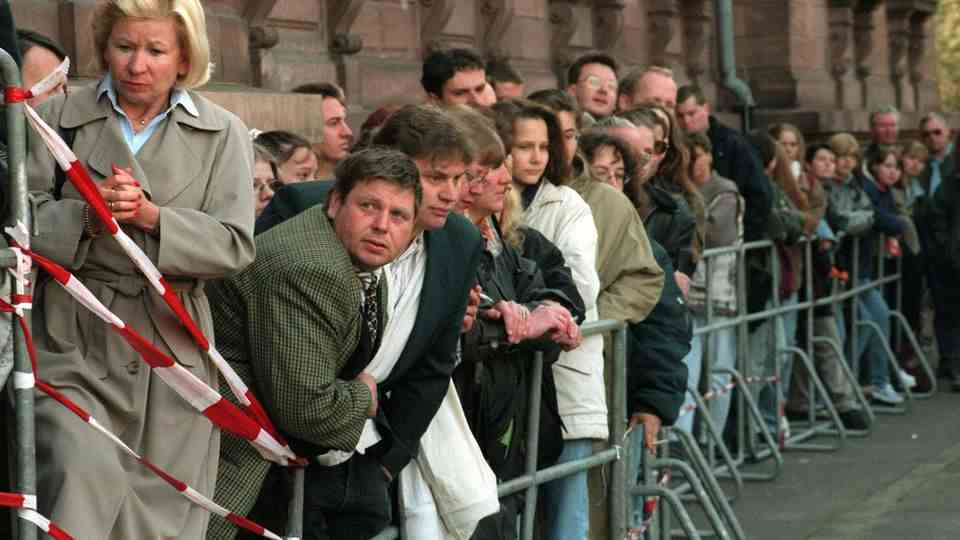
The proceedings against Monika Böttcher took place with great public interest. At times there was a heated mood that had something of a witch trial
© Katja Lenz/ / Picture Alliance
Even in retrospect, the case sounds confused and abstruse. There was the cold, stubborn mother who got caught up in contradictions. A mentally unstable husband who is said to have accused himself of being the perpetrator in some places. Testimonies did not match. The alleged sequence of events, according to which Monika Böttcher is said to have strangled the children one after the other on her shopping trip on August 4, 1986, is not very convincing. And the motive is also a mystery. Kevin Pratt, Monika Böttcher’s lover, got along well with the children. They would not have stood in the way of a life together in the USA, as Böttcher had imagined. And if Pratt had refused to take Böttcher to the US, they certainly wouldn’t have had to die.
Little fits together, which also has to do with the determination of the police on a crime related to a relationship. Apparently there was only the alternative you or he, a third perpetrator was never seriously considered. Which, in retrospect, seems quite strange. Because the living situation in the apartment building at Ausbacher Strasse 3 was very special. The house was occupied entirely by members of the Weimar/Böttcher family. In addition to Monika Böttcher and her husband Reinhard, her older sister lived there with her husband, an American, her younger sister with her husband, as well as her mother and grandmother. Family members walked in and out of their homes. Melanie and Karola were often in the care of uncles and aunts or grandma and great-grandma.
Was there a key omission in the investigation?
Why the investigators never seriously assumed that a third person was the perpetrator may be a key omission in the investigation. Because when researching the true crime documentary, the “Spiegel TV” team came across material that accused Monika Böttcher’s former brother-in-law. The former US soldier, who was stationed in Philippsthal, was accused and convicted of sexual abuse in the US a few years after the murder of the Böttcher children. In an interview with the “Spiegel TV” team, he denied any suspicion of being involved in the crimes in Germany.

To this day, the Hamburg lawyer Gerhard Strate represents the interests of Monika Böttcher
© Spiegel TV / RTL / star
In any case, lawyer Gerhard Strate, who still represents Monika Böttcher’s interests, is certain: “This alternative, that a third party can also be considered as the perpetrator, is a constellation that also brings us much closer to the truth.” Strate has now had the DNA on Melanie and Karola Weimar’s bed linen examined. Male DNA traces of unclear origin were discovered. Strate is now trying to compare these traces with the DNA of Monika Böttcher’s former brother-in-law.
Matching DNA comparison could cast doubt on Monika Böttcher’s conviction
However, even a match would not necessarily point to a perpetrator, since the brother-in-law had regular contact with the children due to the special living situation, so the trace could also have arisen from a completely harmless meeting. However, this would cast doubt on the conviction of Monika Böttcher.
Böttcher’s lawyer Gerhard Strate is certain: “If I had known that at the same time a relative of Monika Böttcher was being accused in America of sexually abusing underage children (…) Ms. Böttcher would never have been convicted.”
The three-part true crime documentary “The Secret of the Weimar Murders – A New Trace” produced by “Spiegel TV” can be seen on the streaming portal RTL+ from March 7th.


